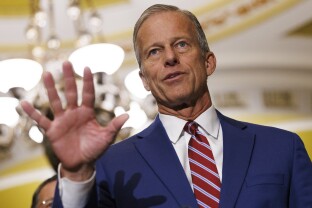Senate Republicans appear ready to jam the House on reconciliation. The House swears it won’t happen.
“We’re not going to be jammed,” Speaker Mike Johnson told NOTUS in a brief interview on Tuesday. “If the product is dramatically different, then we won’t be able to meet the deadline, so I’m not going to force my members to do something that we haven’t fully processed.”
“The less modifications they make to our bill, the better,” Johnson added.
